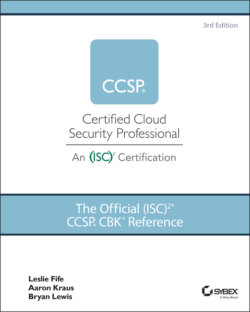Читать книгу The Official (ISC)2 CCSP CBK Reference - Leslie Fife, Aaron Kraus - Страница 83
Container Security
ОглавлениеContainerization, such as through Docker or LXC, has many benefits and some vulnerabilities. These include resource efficiency, portability, easier scaling, and agile development. Containerization also improves security by isolating the cloud solution and the host system. Security risks occur through inadequate identity and access management and through misconfigured containers. Software bugs in the container software can also be an issue. The isolation of the container from the host system does not mean that security of the host system can be ignored.
The security issues of containerization must first be addressed through education and training. Traditional DevOps practices and methodologies do not always translate to secure containerization. The use of specialized container operating systems is also beneficial as it limits the capabilities of the underlying OS to those functions a container may need. Much like disabling network ports that are unused, limiting OS functionality decreases the attack surface. Finally, all management and security tools used must be designed for containers. A number of cloud-based security services are available.
There are many containerization solutions provided by major CSPs. One can easily find articles that extoll the virtues of one solution over another. As with other areas of technology, which is best is often a matter of who you ask. Determining which solution is best for your organization requires comparing costs and features.
